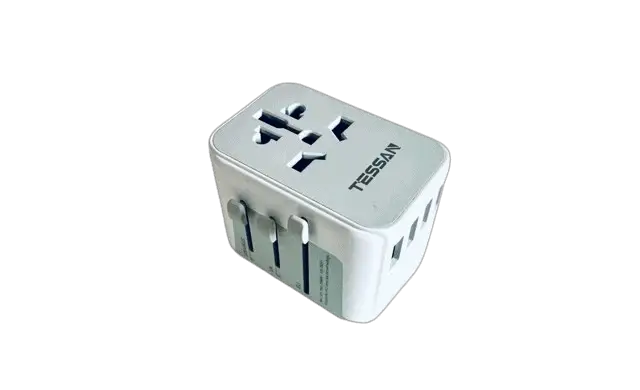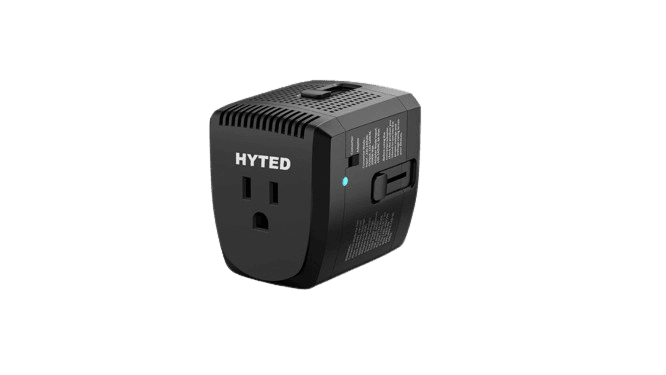Choosing where to sleep in Japan, usually requires a lot of planning and budgeting, and sometimes we don’t know exactly what our options are. Hotels are the obvious option in terms of accommodation, but what about Airbnb? Depending on where you’re from, you might be more or less used to Airbnb, and you probably already know a little about its advantages and disadvantages, but how affordable is Airbnb compared to hotels in Japan?
Airbnb is cheaper than most Western-style hotels and business hotels, and sometimes even cheaper than capsule hotels. It is possible to find an Airbnb in Central Tokyo for two people for about $35 per night, while most hotels start around $60 (capsule hotels being the exception at around $25).
But the price isn’t the only thing you should take into account when choosing the type of accommodation. Other factors like location and comfort are really important to take the best out of your trip. Let’s take a closer look at the pros and cons of both Airbnb and hotels, so you can decide what fits your needs.
Airbnb

© Ana Costa
Airbnb is an American company that was created in 2007 and serves as a huge marketplace online for vacation rentals. It is available worldwide, and it’s often a good workaround for hotels during peak seasons. Airbnb in Japan is not different from another Airbnb you might have tried before, but there are a few things you should keep in mind to choose the best option for your travel.
Let’s take a look at the pros and cons of Airbnb in Japan.
Pros
Airbnb is usually cheaper than hotels. If you’re traveling on a budget, choosing Airbnb might be the right thing to do. By doing a quick search on the Airbnb website, you can find an apartment in Tokyo for two people for about $35 per night. All standard hotels are above that price, and the prices can go up exponentially if you pick better hotels.
Airbnb allows you to interact more with the locals. This is a huge advantage of Airbnb because hotels don’t give this option. If you’re searching for a more immersive experience during your travel, talking to your host can be very helpful. There’s no better way to have nice local tips on the best things around than to ask someone who knows the area. And maybe you can even make a new friend. Of course, not all hosts will be willing to talk to you, but if you get the chance to find one like that, make sure you grab it.
Hey, check out these recommendations I have for you!
Before going any further, take a look at some of the recommendations I've handpicked for you. I think these are essential items you should have on your trip to Japan. You can check them out and buy them directly from Amazon.

|

|

|
| A universal travel adapter | A 10,000 mAh power bank | A travel adapter and converter |
Airbnb is good for families or large groups. It’s not always easy to find a hotel room that can fit the whole family inside, and most of the time you have to split into several rooms. With Airbnb, this is no longer a problem because you usually rent the whole apartment/house, and you can enjoy your vacations all in the same space. And since you pay for the house, it doesn’t matter if there are four or six of you, for example.
Airbnb lets you experience authentic Japanese living. If you truly want to experience how the Japanese live, Airbnb is the way to go. I believe that no hotel will give you a true sense of Japanese living, not even the most Japanese of them. To have a glimpse of Japanese living, you have to rent a Japanese house. And the best part is that you can experience both traditional or modern Japanese living depending on the area you choose.
Airbnb usually has some useful extras. It’s not uncommon to find Airbnb with laundry facilities, for example. This can be very handy to avoid the incomprehensible coin-operated laundry services in Japan, and the host usually gives you information on how to use the equipment in the house. I also saw some Airbnb that provide you a pocket Wi-Fi during your stay which can save you some money, otherwise, you will likely have to rent one (you can check my recommendations on my resources page)
Dreaming of Japan? Here’s your go-to guide for a great trip.
Download Free Guide
Cons
Airbnb rules change according to the host. This can be a little overwhelming because you will certainly need some time to adapt yourself to the first set of rules. If you change to another Airbnb, that has different rules, a few days later, you might feel a little disoriented. Often, the rules will be different from the previous host, but, luckily, there will always be a few common points like:
- Don’t make noise (extremely important for the Japanese people).
- Don’t take anything from the house (most tourists are used to taking soaps, shampoo bottles, and other things like that from the hotels, but this is a person’s home, so please don’t do that).
- Avoid any misbehavior related to noise, garbage, strong smells, hygiene, and smoking in general.
Airbnb means you have to clean the apartment/house. While in hotels, you can leave your room as it is without making the bed or cleaning it, in Airbnb, you can’t do that. The apartment must be cleaned before you leave, so plan on getting up early to get things done before you leave for your next adventure. Double-check with your host the rules and what you are supposed to do before leaving to avoid any bad surprises.
Airbnb usually has extra fees. Always check carefully all the options before booking an Airbnb. More often than not, there are some extra fees added at the end, usually for cleaning service or other fees like that. Just be sure to read every detail of your booking before you book it.
Airbnb can be located in the middle of nowhere. You should be careful with this point if you plan on using public transportation only to get around Japan. There are lots of beautiful traditional apartments and houses, but that often means that the location is not that good. After all, have you ever seen an excellent home located in the middle of a city? Of course, if you plan on renting a car, you should be fine, but it’s always better to choose a well-located accommodation to make your trip easier.
Airbnb usually means no breakfast. If you’re one of those persons who can’t start the day without breakfast, you might want to reconsider the Airbnb option. Breakfast in the morning is usually a pleasure that you will experience in hotels, not Airbnb.
You may also like:
Can couples stay in capsule hotels?
Can Children Stay in Capsule Hotels?
Hotels

© Ana Costa
Western-style or business hotels
I guess I don’t have to explain to you what hotels are because there’s no big difference between hotels in Japan and hotels in any other part of the world, so let’s take a look at the pros and cons of hotels in Japan.
Pros
Hotels are familiar to you. This is one of the major advantages of staying in a hotel in Japan. You generally won’t have any problem using a hotel in Japan because they work pretty much the same as any other hotel. If you think that visiting Japan is already an astonishing experience that takes you out of your comfort zone, you might want to stick with hotels to have a break from the new experiences.
Hotels generally include breakfast. Who doesn’t love a good breakfast ready when getting out of bed without having to do anything? This is one of the things I enjoy the most in hotels because I can start my day with a good meal that is right there waiting for me. Hotels will usually offer a breakfast in Japanese style, which is also a good opportunity to try some new things.
Hotels are often well-located. Wherever you see a hotel, there’s usually all you need right beside it. Most hotels are located close to train stations, which is great in Japan, convenience stores, and all other sorts of facilities that you could need. It’s extremely rare to find a hotel located in the middle of nowhere.

© Ana Costa
Cons
Hotels can be expensive. It depends on the type of hotel and the season you’re traveling, but, most of the time, hotels are more expensive than Airbnb, even though business hotels can be affordable. If you’re looking to make some economies, avoiding hotels can be a good option.
Hotel rooms in Japan are smaller than what you’re used to. Even if you’re familiar with hotels, those in Japan have smaller rooms. I believe that pretty much every accommodation in Japan is smaller than what you’re used to, but I guess that there’s a good reason for that. A small country like Japan with a population density of around 901 people per square mile has to save space to fit everyone. (To give you an idea, the United States has a population density of approximately 93 people per square mile).
At hotels, you often pay per person, not per room. This can happen a lot, so be careful when booking your hotel. Usually, the price is per person, which means that if you’re two or three, the price can escalate pretty fast.
Capsule hotels

© Ana Costa
I couldn’t end this post without writing about the famous capsule hotels in Japan. These hotels are a little controversial, especially if you consider the Japanese opinion about them, but they usually look a little like futuristic pods coming right out of a sci-fi movie. If you never heard about capsule hotels in Japan, I have already written two posts on the subject that you can read for more information:
Japan’s waiting for you! Get your quick guide for the best trip.
Grab It Now
But now let’s take a quick look at the pros and cons of a capsule hotel.
Pros
Capsule hotels are cheap and some of them can be extremely cheap. Like any type of accommodation, there’s a wide range of prices, but they usually start super cheap.
Capsule hotels are accessible at all hours. This can be useful if you’re staying out late, and enjoying some nightlife in Japan.
Capsule hotels are a unique experience. Yes, sleeping in a small pod is an experience that you won’t forget that easily.
Cons
Capsule hotels have limited space. Since you’re sleeping in a pod, not in a room, the space for your belongings is really limited. Most of the time you can’t put your luggage in the pod, and you have to leave almost everything in a locker at the entrance.
Capsule hotels are usually noisy. Often seen as the last option, especially by the Japanese, capsule hotels don’t have good sound insulation, and you can easily hear the person in the pod next to you. Common noises include snoring, alarm clocks, especially from 6 a.m. to 8 a.m., and any other sound that a human body can produce. Also, because they’re accessible at all hours, there’s a lot of “come and go” at any time.
Capsule hotels lack privacy. Besides your capsule, the rest of the hotel is all about shared areas (shared baths, too). If you’re looking for privacy during your stay, you will have to forget about the capsule hotel. There’s no private toilet or bathroom in capsule hotels. All the facilities are shared, and even your pod can’t be locked.
Conclusion
And that’s it, we arrived at the end of this post. Hopefully, now you have a better idea of the main differences between Airbnb and hotels in Japan, and you even have the bonus information about the famous capsule hotels. Of course, there’s hardly something cheaper than capsule hotels, but not all are suitable for everyone.
In my opinion, it’s best to try and find some cool Airbnb, especially if you’re traveling on a budget. I think the advantages of this kind of accommodation outdo the small disadvantages. If you don’t want to take any risk, go for the standard hotels, just keep in mind that they are smaller than what you’re used to. And if you like crazy adventures, search for capsule hotels, but make sure you read my previous posts on these capsule hotels because there’s some valuable information there.



